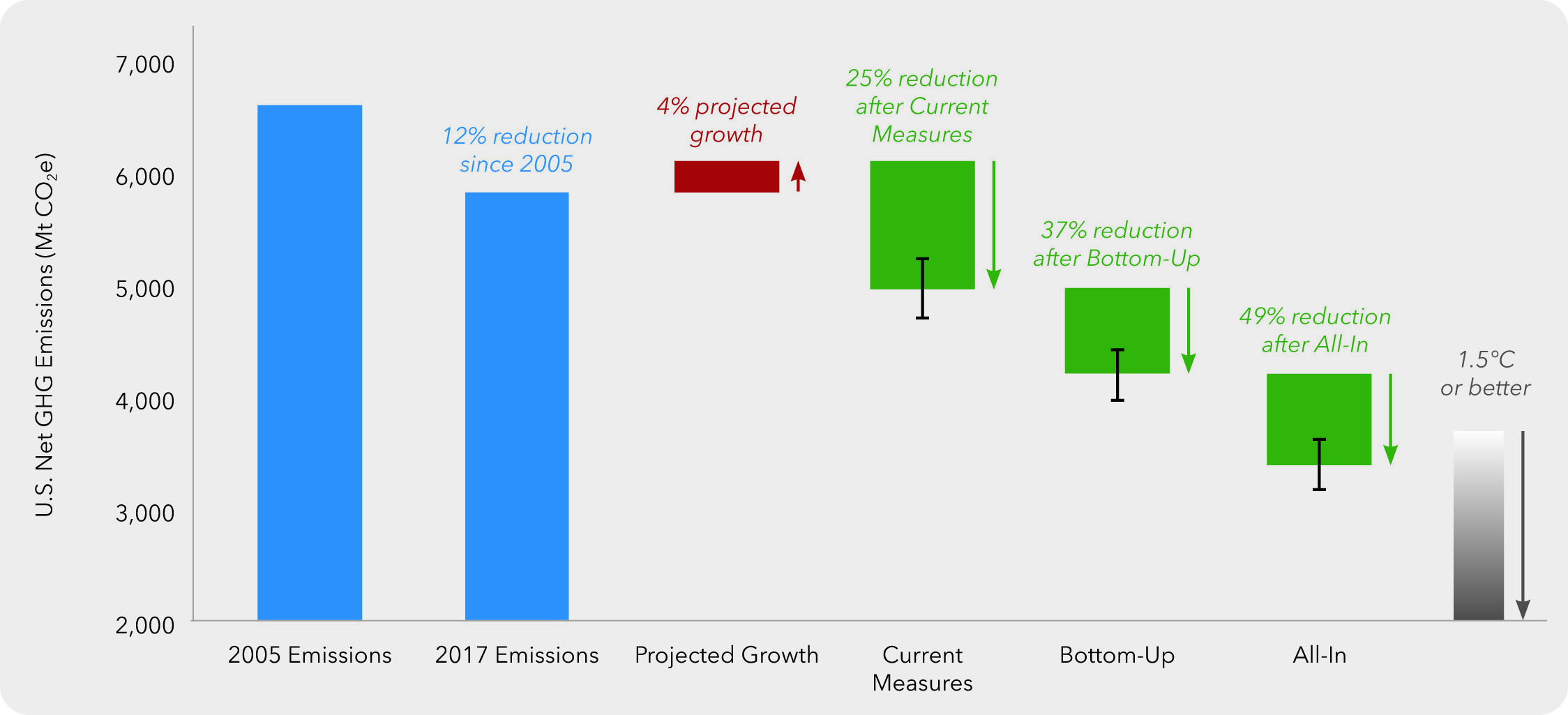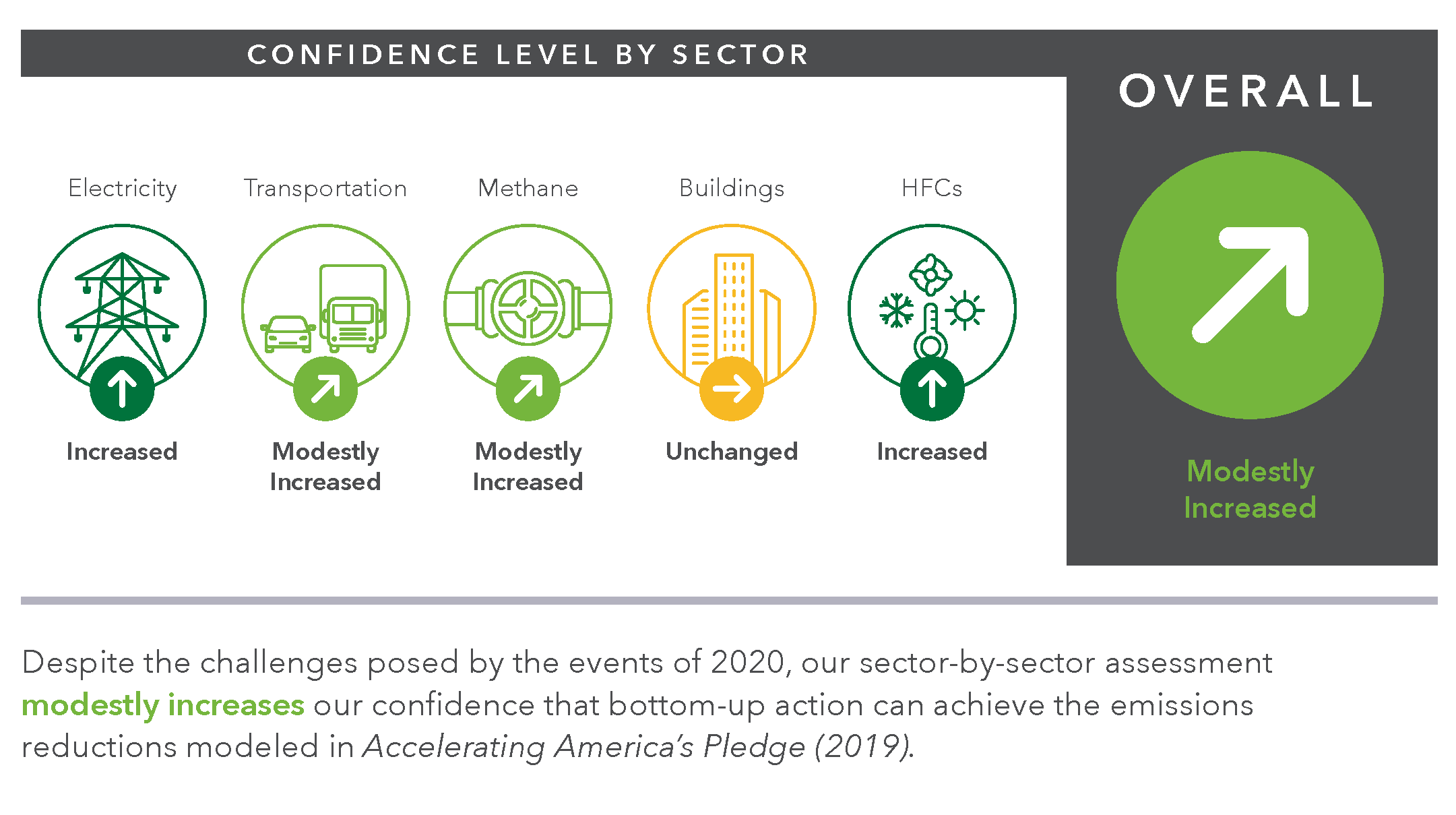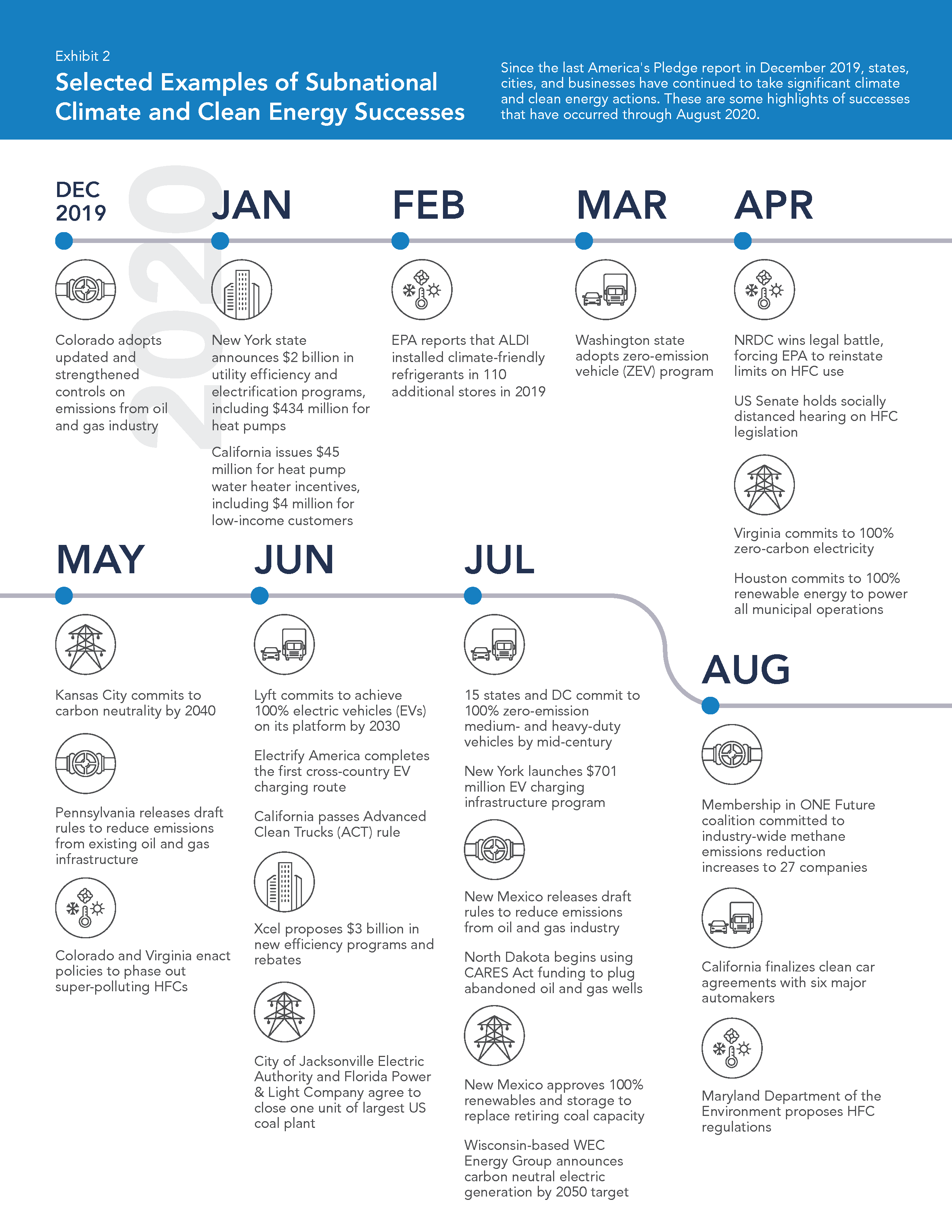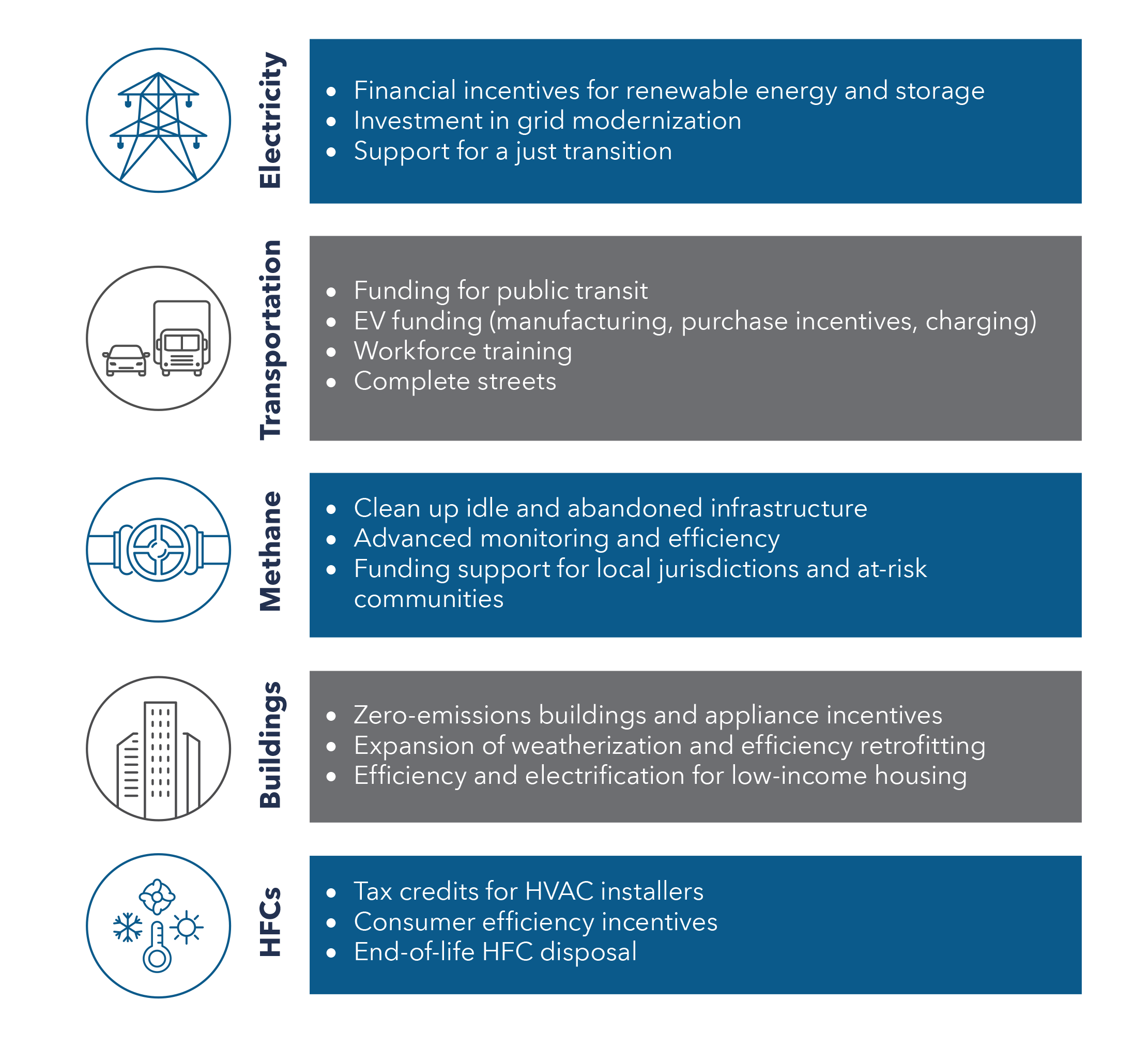Delivering on America’s Pledge
Achieving Climate Progress in 2020
Delivering on America’s Pledge, launched at the 2020 Bloomberg Green Festival, assesses the 2030 impact of the COVID-19 pandemic and subsequent economic recession on the ability of states, cities, businesses, and others to drive the ambitious emissions reductions.
In 2019, our report Accelerating America’s Pledge illustrated how states, cities, businesses, and others across the United States could achieve up to 37% emissions reductions below 2005 levels by 2030 with significantly expanded action and 49% emissions reductions below 2005 levels by 2030 with aggressive federal reengagement starting in 2021.

Since the 2019 report, the COVID-19 pandemic and subsequent economic recession have had wide-ranging and destructive impacts on lives, employment, and economic security across the United States and the world. In this new analysis, we assess how recent trends have affected the ability for states, cities, and businesses to drive the 2030 emissions reductions modeled in Accelerating America’s Pledge.
Overall, this year’s sector-by-sector analysis increases our confidence in the ability of bottom-up leaders to drive the ambitious 2030 emissions reductions modeled in Accelerating America’s Pledge, despite the challenges posed by COVID-19. In four of the five sectors—electricity, transportation, methane, and HFCs—recent trends are increasing confidence in the ability to achieve the modeled 2030 emissions reductions by states, cities, and businesses. In the only remaining sector assessed—buildings—prospects for emissions reductions appear substantially unchanged from our previous ambitious analysis.

Devastating as it has been, the COVID-19 pandemic has not shaken the climate commitment of US states, cities, and businesses. In the midst of a public health and economic crisis, they have continued to drive ahead—in many cases with even greater resolve—toward a fully decarbonized economy by mid-century. Stimulus relief could help put states and cities in a position to continue this trend.

Demand for clean technologies has proven resilient, suggesting that we may have passed a tipping point in the energy transition. Leadership from diverse states, cities, and businesses, combined with strong clean energy market fundamentals and supportive public opinion point toward powerful winds of change across America’s energy landscape.
Federal stimulus programs that include ambitious clean energy investments and policies provide a critical opportunity to support climate ambition. Economic support for state and local governments will likely be key to the needed speed of progress in the years ahead. Support for grid modernization, electric transit, zero-emissions buildings, end-of-life refrigerant disposal, fossil fuel mining and drilling cleanup, and investment in low-income and impacted communities can strengthen the economy, create jobs, improve public health, reduce air and water pollution, promote equity, and address climate change.

